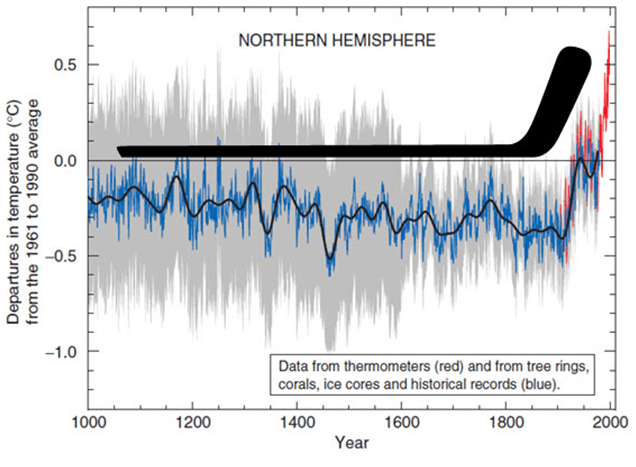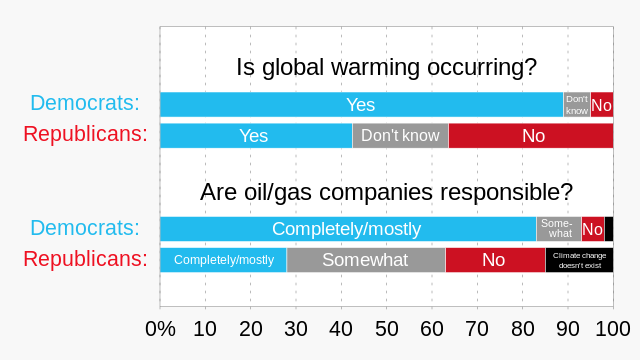 After a decade-long legal battle, Dr. Michael Mann, a famous climate scientist, has finally won his defamation case.
After a decade-long legal battle, Dr. Michael Mann, a famous climate scientist, has finally won his defamation case.
The lawsuit involved Rand Simberg and Mark Steyn, two climate change deniers who are associated with organizations like the Competitive Enterprise Institute and National Review.
Dr. Mann was awarded $1 in compensatory damages from each defendant. In addition, Simberg faces a fine of $1,000 and Steyn could be liable for $1 million in punitive damages. While the pair plan to appeal the decision, it has no doubt made history.
But why were Simberg and Steyn so vehemently opposed to Dr. Mann, and what does this victory mean for the future?
Discovery of the “Hockey Stick”
 In 1998, Dr. Michael Mann introduced to the world a revolutionary and alarming graph - the famous “hockey stick”.
In 1998, Dr. Michael Mann introduced to the world a revolutionary and alarming graph - the famous “hockey stick”.
The graph illustrated relatively stable global temperatures before the Industrial Revolution and a sharp increase afterward. This made the shape of the graph look like an upturned hockey stick.
To trace temperatures back to before humans kept records, scientists rely on "proxy" markers such as tree rings, ice cores, sediment cores, corals, and others.
While instances of warming and regional weather patterns like El Niño are to be expected, the hockey stick curve for the first time demonstrated the unprecedented environmental impacts of burning fossil fuels.
When the graph was published in the IPCC (International Panel on Climate Change) report, it sounded the alarm on the climate issue early enough that remedial action could be taken. It led to a push to be environmentally conscious in terms of political policies and personal lifestyles.
However, the hockey stick graph also triggered a counter-movement of skeptics whose aim has been to discredit climate science.
A Win For Science
 Simberg and Steyn passionately disputed Dr. Mann’s data and research to the point where the jury found some of their statements to be libelous, or damaging to a person’s public image. They claimed that Dr Mann tampered with and cherry-picked his research data and compared him to former Penn State football coach Jerry Sandusky who was convicted of crimes against children.
Simberg and Steyn passionately disputed Dr. Mann’s data and research to the point where the jury found some of their statements to be libelous, or damaging to a person’s public image. They claimed that Dr Mann tampered with and cherry-picked his research data and compared him to former Penn State football coach Jerry Sandusky who was convicted of crimes against children.
Winning a defamation case is no easy feat since the claimant must prove that the false comments caused them genuine financial harm. Dr. Mann showed how he had lost grant funding and was rejected by a research team because of the harm the men caused to his reputation. The comments comparing him to Sandusky led the jury to levy serious punitive damages on the pair.
Dr. Mann’s victory marks a historic moment where the scientific community has confronted the growing climate skeptic movement. Any progress requires us to question, investigate, and have healthy debates, but personal attacks against anyone with differing perspectives are unwarranted.
This case, hopefully, will act as a reminder to all that there is a difference between questioning research and baselessly insulting the scientists behind it.
Sources: NY Times, NPR, Washington Post, Time, Guardian








